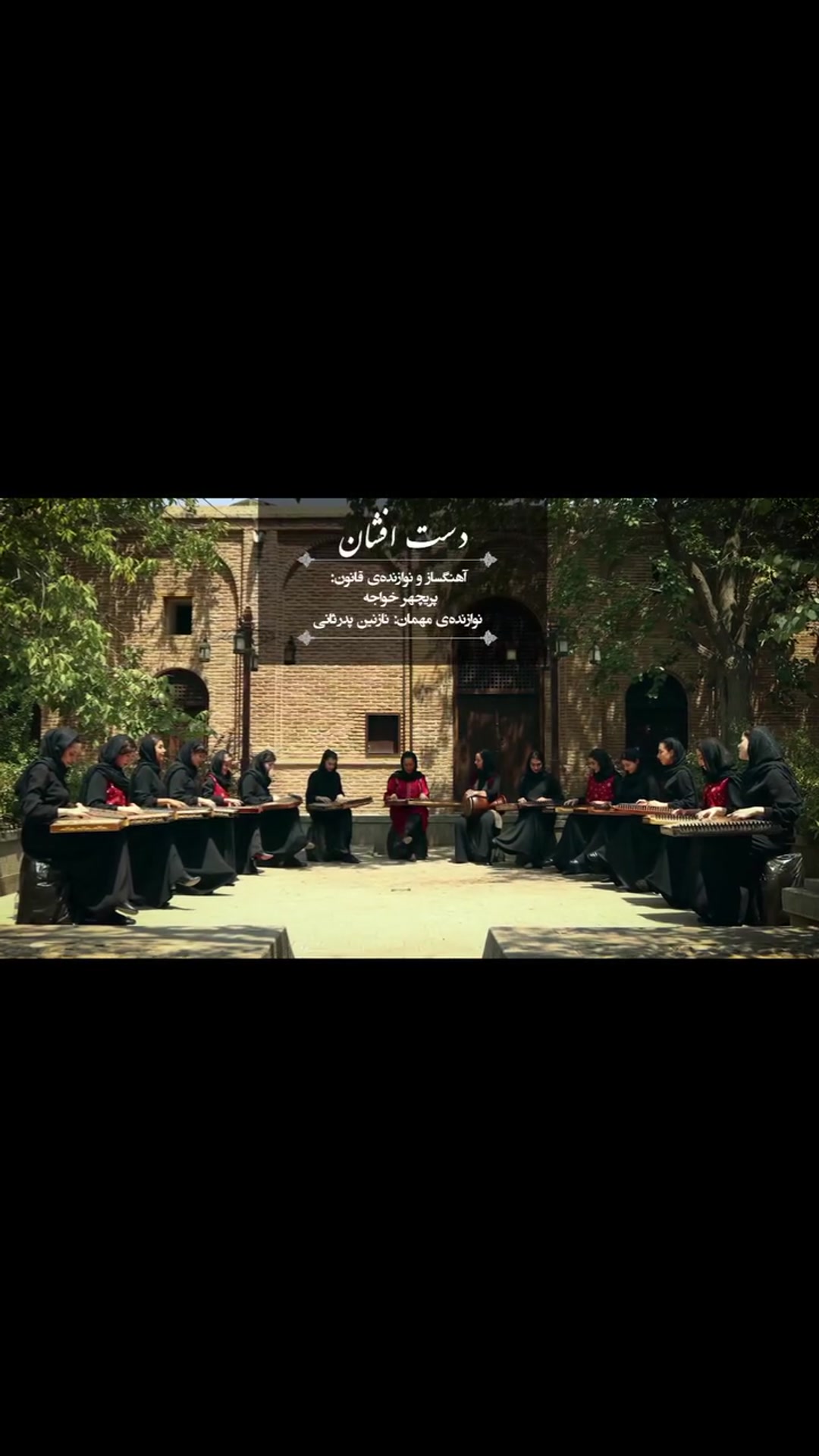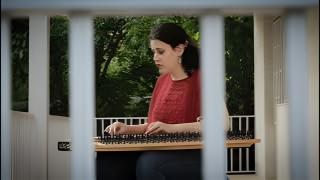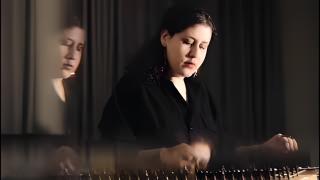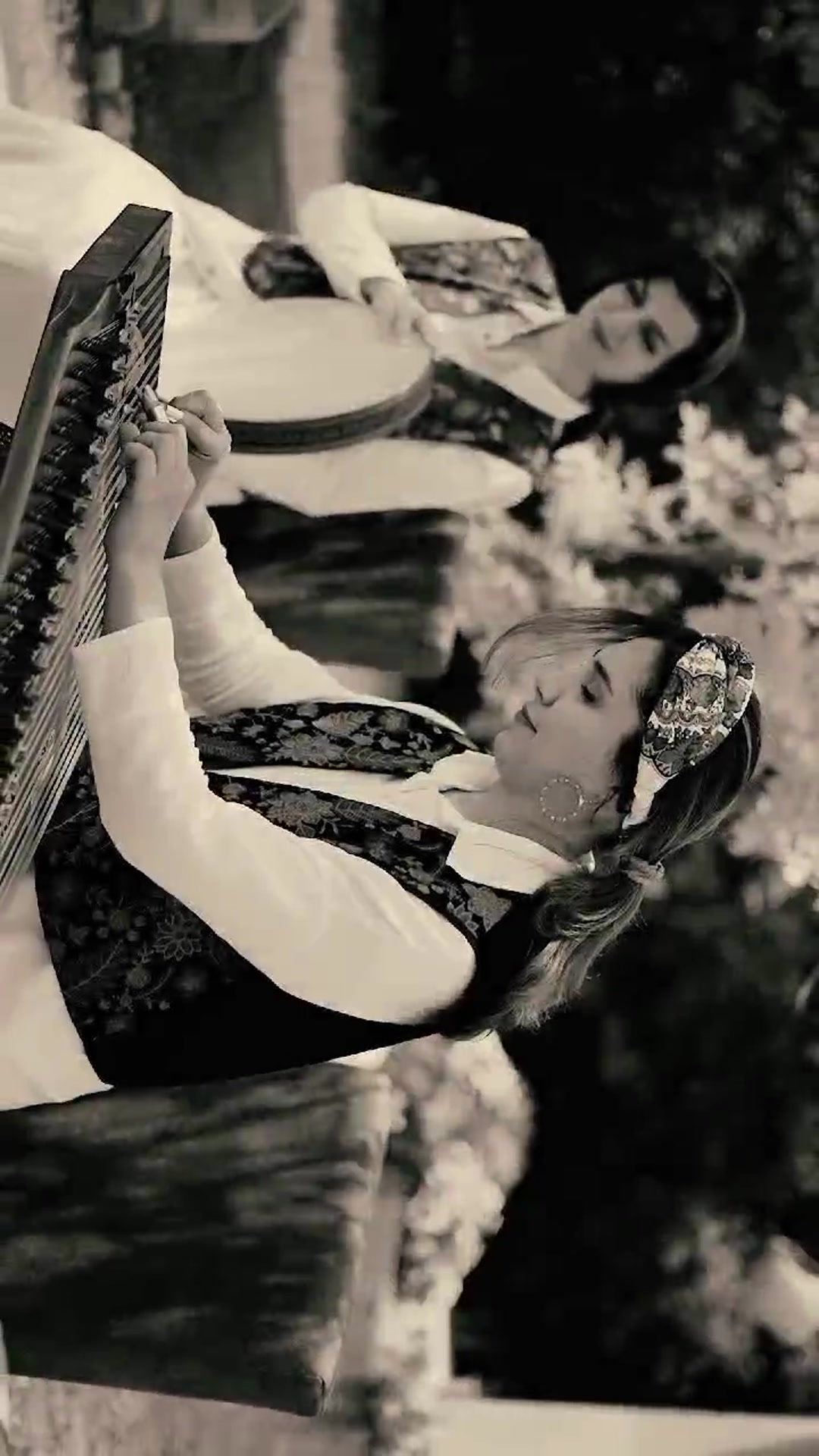Online Kanun Course
More Links
- Accordion
- Cajon
- Cello
- Clarinet
- Classic Violin
- Double Bass
- Electric Guitar
- Flute
- Guitar
- Handpan
- Hangderam
- Harmonica
- Harmonica
- Harp
- Lakota Fluet
- Melodica
- Persian Tang
- Piano
- Saxophone
- Violin Alto


Sahar Yousef - Kanun
Tuition : 1,000,000 toman
Sahar Rashidi - Kanun
Tuition : call for price
Ali Sattari - Kanun
Tuition : call for priceStudents Videos
Kanun
Learn qanun (canon) instrument principally
Inavaz group is one of the first online qanun training sets in Iran, which has tried to organize qanun training classes for Iranians abroad and English speakers. With Inavaz group, learning qanun instrument without a teacher doesn’t have meaning anymore! Because the best famous teachers of qanun instrument in Iran work in Inavaz group. They’re doing their best in online qanun training with so much love.
In fact, the idea of qanun class at home was an untapped idea to save students' time and energy, which is taken place by talented Inavaz group. Of course, Inavaz group’s plans do not limit to this. This well-known group has other plans and options for students, which will be fully explained below.
In this article, first it is explained how to attend the best online qanun instrument training. Then, there are some explanations about qanun training at home from beginner to advanced, the advantages of online qanun training and also how to get to know the teachers of Inavaz group in qanun field.
Also, highlights that should be considered when you’re buying a qanun instrument are examined with the factors affecting on the price of a qanun. At the end, we will talk about the cost of qanun instrument class and the amount needed to invest for the training of this musical instrument.
How to hold online training course for qanun instrument
The form of holding qanun instrument training for Iranians abroad and English speakers around the world is a half-hour live broadcast on Instagram. These trainings are completely private. It means only teacher and student are the present ones in the live. The student has the opportunity to ask questions during the online qanun training course, and the teacher will answer the questions due to the class time. Of course, the student can record all the classes to watch and practice the training many times during the week.
If the student faces a problem in the future exercises, it is possible to ask questions about the problems through Inavaz group backup with Sky room platform, so that the student's questions will be answered by the backup group with the cooperation of the honorable teacher. So there’s no need to be worried about unwinding during the week before the new session comes.
This may seem simple but it can raise the quality of trainings significantly. It proves Inavaz group’s allegation about being the best in attending online qanun instrument training in Iran as well.
The best qanun instrument training from beginner to advanced at home
When it’s about the best beginner to advanced qanun training, the first thing that comes to mind is that online qanun training teachers must be very professional and skilled to be able to teach qanun training from beginner to advanced at home through live and not in person.
Of course, although it may seem a bit difficult but it is easily possible for Inavaz group teachers to attend qanun instrument training from beginner to advanced at home, and the students from beginner to advanced qanun instrument training in online and virtually classes are completely satisfied.
Surely, Inavaz group owes this to the best famous qanun instrument teachers in Iran who have accepted to teach their art and substantial talent to the ones who are interested in qanun instrument.
The advantages of online qanun training
Online qanun training has many benefits and the most important of them is saving time. Because in this type of education, students don't need to take time for commuting. They can attend classes at home or at their workplace and get enough use of the online qanun training class.
Another advantage of online qanun training is that students can choose the teacher they want from the list of the best qanun instrument teachers without any location limit. Also they can perfectly use the art of their chosen teacher wherever they are.
In fact, the biggest advantage of online qanun is for Iranians abroad and English speakers who dream of playing qanun instrument, but due to the lack of qanun teachers, they sometimes forget about their dream.
The introduction of online qanun instrument training teachers
Inavaz group is honored to gather the best famous qanun teachers in Iran together. These all teachers are the ones who play qanun instrument with love and this instrument has merged into their flesh and blood.
Obviously, when such teachers turn to online qanun instrument training, they give their students what they have acquired through many years with their heart and soul.
Although all the teachers in Inavaz group are among the best famous teachers of qanun instrument in Iran, but sometimes the student may have a better relationship with one of the teachers and his/her teaching methods. Obviously, this kind of intimacy between teacher and student doesn’t build easily but Inavaz group has come up with a very smart plan for this issue.
Along with the list of the best qanun teachers, Inavaz group has also put a free qanun instrument training sample on the website. The student can choose the teacher he/she wants from the list of the best qanun teachers then he/she can see a free sample of a qanun teacher’s training to figure out if he/she can interact with the honorable teacher or not.
When the student would build the necessary interaction with his/her chosen teacher by watching a free sample of qanun instrument training, then he/she can contact the experts of Inavaz group to register and benefit from the art of the chosen teacher.
Dear students can contact Inavaz group every day from 8:00 am to 24:00 in order to get more information and register for qanun training from beginner to advanced at home, so that the experts of Inavaz group can guide them.
We have to mention that primary training of qanun instrument is too important. Because if the student does not see significant progress in the elementary training of the instrument, there is a possibility that this would make him/her disappointed and discouraged, and it is not unlikely that he/she will give up on continuing the trainings although with all the love and interest he/she has for playing this musical instrument.
So it is necessary for the students to begin in a principled way and after choosing their teacher, use the free consultation session with the chosen teacher so that they can ask their teacher everything they need to get started completely. Among the most important questions that students should ask in the counseling session, we can mention how to practice, the amount of daily practice, the number of training sessions, etc. The students also should ask their teacher’s opinion about the best qanun instrument to start training with.

Highlights in buying qanun instrument
When you’re buying a qanun instrument, you have to consider some points. In fact, the best qanun instrument to start training with is the one that has all the necessary factors. Some of the most important points in buying a qanun instrument are:
The instrument’s health
One of the main factors in buying a qanun instrument is to check the health of the qanun instrument. Because if the instrument has a fracture or a crack, even if it is small, by passing time or after several times of use, the quality of its sound will decrease drastically and it cannot be a suitable option for beginner to advanced training of this instrument.
The instrument’s strings
Another important factor that should be considered when you’re buying a qanun is the strings of this instrument. The strings of qanun shouldn’t make a whiz sound or in other words a sound of noise (kez) when it is played. This sound shows that the quality of the instrument's strings is low, and it is certainly not a good option to buy such an instrument even for the elementary training of qanun instrument.
Brand on the frame
The brand on the body of qanun instrument is another factor that should be considered when you’re buying a qanun instrument. Usually, the stamp and the brand of the instruments are carved on the frame of the original instruments. These stamps show the quality of qanun instrument. Therefore, you have to make sure that the brand carved on the frame of qanun instrument is the same as the brand introduced by the seller.
The factors influencing on the price of qanun instrument
Many factors influence on the price of the instrument, we can mention some of the most important of them such as the type of wood used in the instrument, the model of the instrument, the health of the instrument, the producer’s brand, the material and the sound of the instrument's strings.
Of course, if all the mentioned items are gathered together, the price of qanun instrument will increase.
It is recommended that if you’re going to do beginner to advanced qanun instrument training, you should buy the right instrument from the beginning so that you can see the best result of your training. Because surely the sound of a high-quality instrument will increase your motivation to learn this old and pleasing instrument.
The investment amount of the online qanun training
The amount required to invest in the best online qanun training can be seen on the Inavaz site, but the important thing to mention is that the amount listed on Inavaz site is the class fee for a half-hour session. So if the students want to register for online qanun training, they should pay the class fee according to the number of sessions they demand.
Because of Inavaz Group teachers’ assessment, the courses have been prepared in 4 sessions, but if the students demand more or on the suggestion of honorable teacher, it will be possible to increase the number of sessions.
Last word
In this article with the title of online qanun instrument training, we have tried to observe how to train qanun instrument, how to hold classes, the cost of classes, etc so that according to this information, those who are interested can better make decision about how to begin qanun trainings.
In fact, for the first time, Inavaz group has made the dream of qanun trainings for Iranians abroad and English speakers come true.
This group has been very successful yet in holding all kinds of qanun instrument classes at home, for beginners to advanced people, and the amount of students' satisfaction of how the teachers teach and the backup group has confirmed this.







